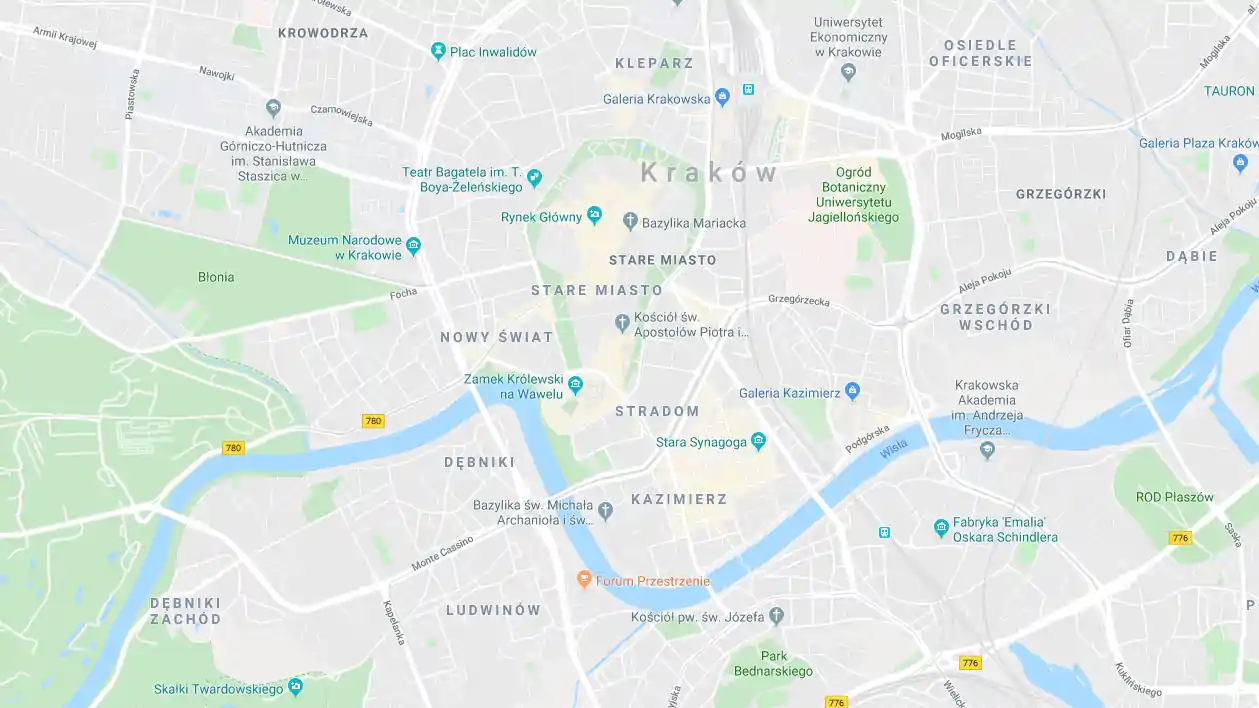Ulica Szeroka, Krakow
ul. Szeroka, 31-053 Kraków
Tourist region: Kraków i okolice
Ul. Szeroka used to be part of the village of Bawół, incorporated in 1340 into the city of Kazimierz near Krakow. From the end of the 15th century, many Jews began to settle in it, mainly the poor - creating their own separate world. With time, they fenced themselves off with their own walls, creating a district with as many as four synagogues, which always smelled of goulash before the Sabbath. In the northern part of the street, where today, there is a small green square surrounded by a fence finished with seven-branched candlesticks, there was probably the oldest cemetery in this district. Before World War II, Jewish suicides were buried there. Today, ul. Szeroka is a Remuh synagogue with one of the oldest Jewish cemeteries in Europe, in front of which stands the bench of Jan Karski, an emissary who tried to inform the world about the Holocaust. Moses ben Israel Isserles, known throughout the Jewish community, is buried in the cemetery, to whom pilgrimages come to from all over the world every year. He is the author of the famous words: “If God had not given the Jews of Poland as a refuge, the fate of Israel would be really unbearable” and the concept: “Poland a paradise for Jews”.On the opposite side, there is the Old Synagogue with a museum devoted to the history and culture of Krakow's Jews. At number 16 in the Popper Synagogue, there is the Old Town Cultural Centre, and at number six, in the old bathhouse, there is the Austeria publishing house and the Klezmer Hois restaurant. It refers to the culinary tradition from before World War II, as well as other neighbouring places, offering Jewish cuisine, including pascha (a sweet cheese dessert), cholent (a traditional goulash) and stuffed goose necks and stomachs. Once a year, ul. Szeroka turns into the world's largest dance square, where musicians from all over the world play music of different genres, but with the same Jewish roots. Shalom at ul. Szeroka is a meeting of cultures, nations and people who want to remember the pre-war Jewish inhabitants of Krakow.
